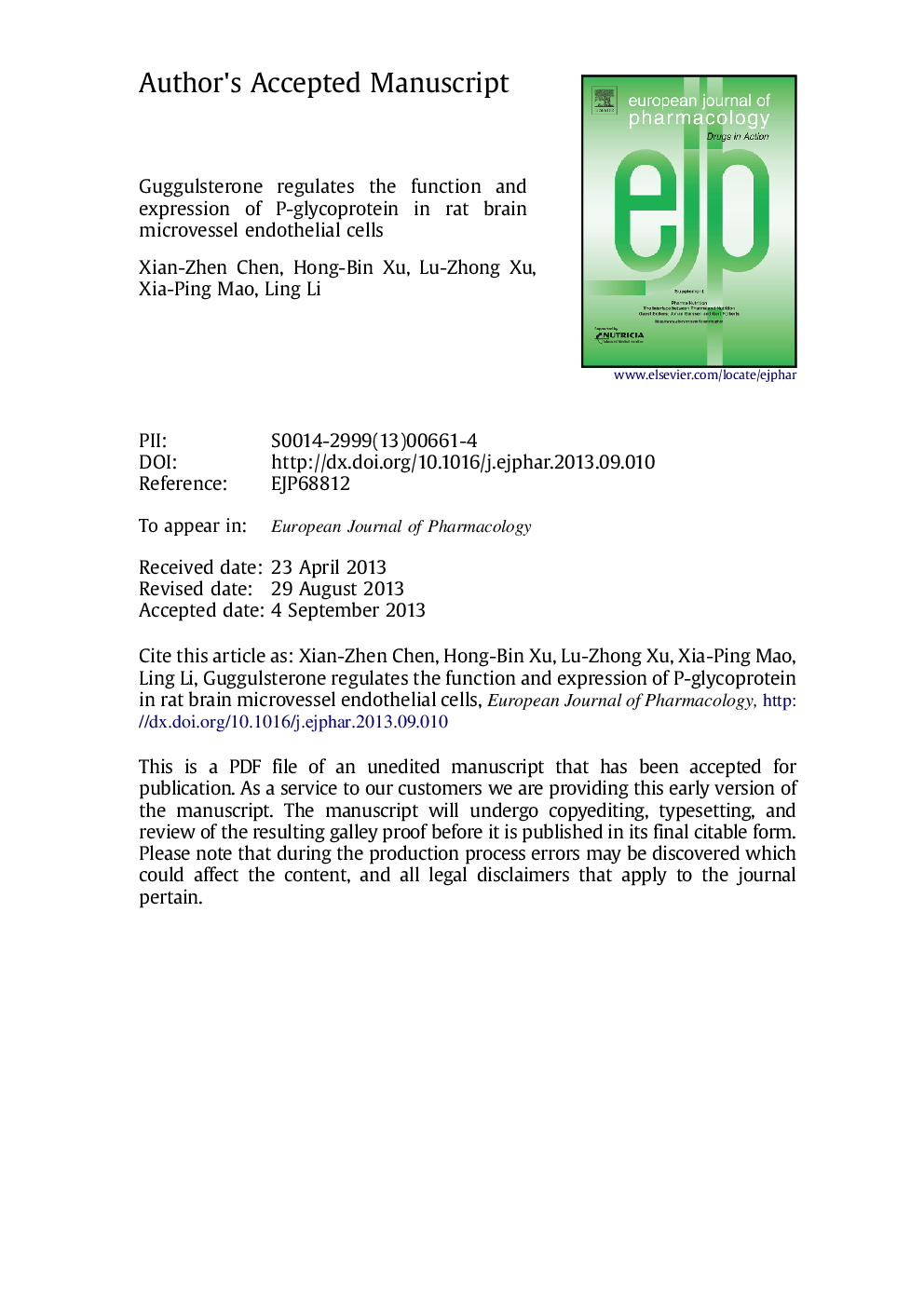| Article ID | Journal | Published Year | Pages | File Type |
|---|---|---|---|---|
| 5828390 | European Journal of Pharmacology | 2013 | 30 Pages |
Abstract
Our previous studies found that guggulsterone could inhibit P-glycoprotein-mediated multidrug resistance in P-glycoprotein over-expressed human cancer cell lines. However, the effects of guggulsterone on the ;P-glycoprotein function and expression in rat brain microvessel endothelial cells (rBMECs) are poorly understood. In the present study, we investigated whether guggulsterone has a modulative effect on the function and expression of P-glycoprotein in rBMECs. rhodamine 123 acts as a good substrate for P-glycoprotein, and agents that block P-glycoprotein have been found to increase the retention of rhodamine in cells. The results showed that the accumulation of rhodamine 123 in rBMECs was potentiated in a time-dependent manner after incubation with 30, 100 μM guggulsterone (P<0.05). Efflux of intracellular rhodamine 123 was decreased in a time-dependent manner from after 30, 100 μM guggulsterone treatment. The inhibitory effect of guggulsterone on P-glycoprotein function was reversible and remained at 120 min after removal of 30, 100 μM guggulsterone from the medium. Further results showed that guggulsterone (30, 100 μM) down-regulated the expression of P-glycoprotein, and had no influence on the expression of breast cancer resistance protein in rBMECs. In addition, the present study revealed that guggulsterone promoted the activity of P-glycoprotein ATPase in a dose-dependent manner. These results indicated that guggulsterone suppressed the function and expression of P-glycoprotein in rBMECs primary cultures.
Keywords
Related Topics
Life Sciences
Neuroscience
Cellular and Molecular Neuroscience
Authors
Xian-Zhen Chen, Hong-Bin Xu, Lu-Zhong Xu, Xia-Ping Mao, Ling Li,
